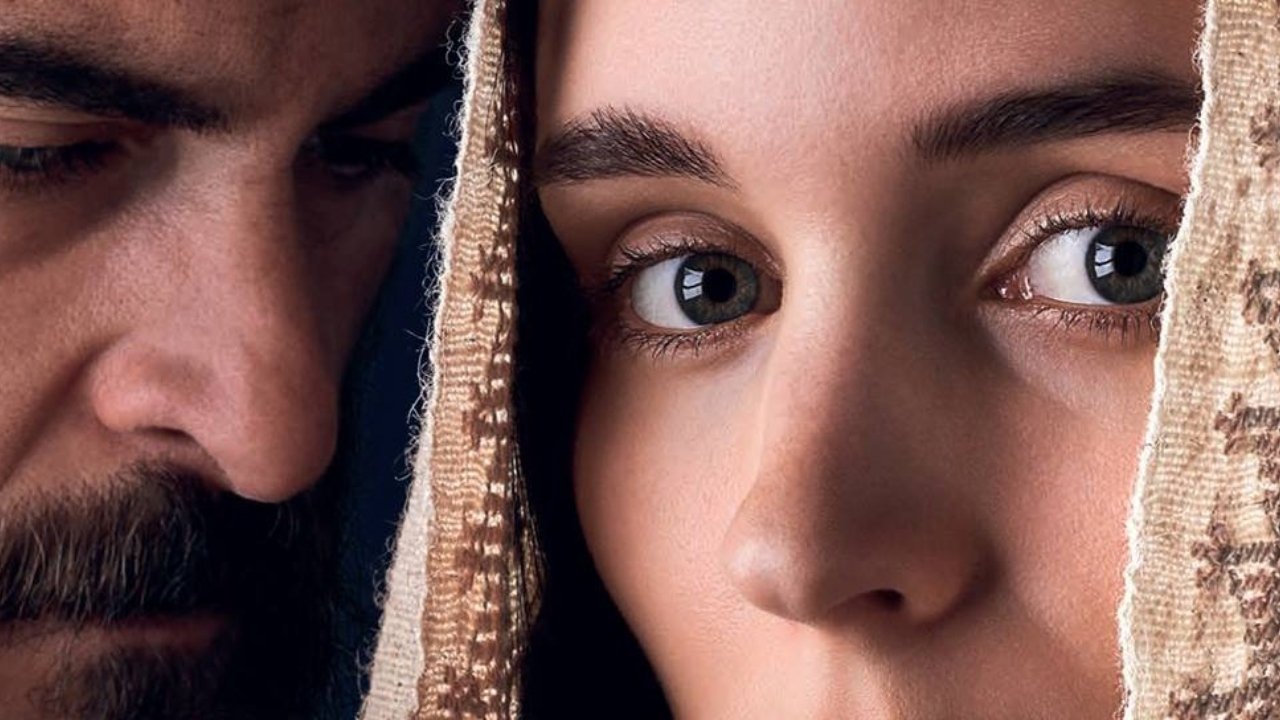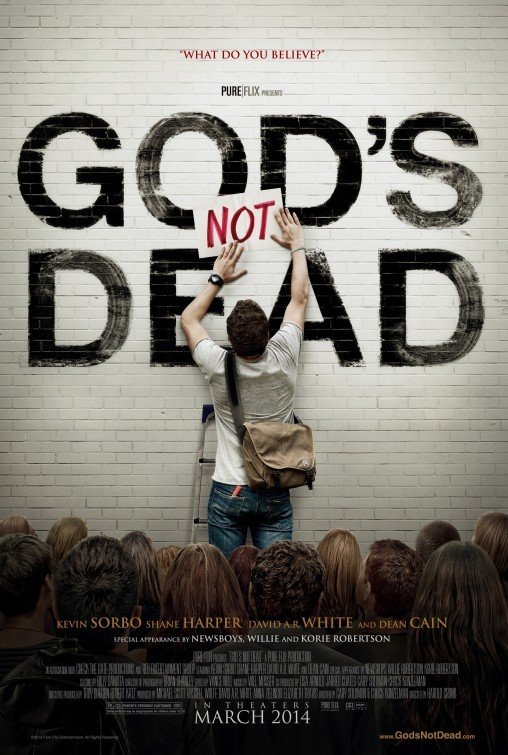
MARY MAGDALENE Lacks Accurate Biblical Details
NOTE: movieguide.org/search/mary”>mary MAGDALENE is available now for digital download. This is a portion of our review of movieguide.org/search/mary”>mary MAGDALENE. For the full review, including a breakdown of content, violence, sex, language and nudity, movieguide.org/reviews/movieguide.org/search/mary”>mary-magdalene.html”>click here.
movieguide.org/search/mary”>mary MAGDALENE is a fictionalized biblical drama about one woman who followed movieguide.org/search/jesus”>jesus and later was the first person to whom he talked after his physical resurrection. movieguide.org/search/mary”>mary MAGDALENE takes some of the biblical events surrounding movieguide.org/search/jesus”>jesus and movieguide.org/search/mary”>mary, but deletes most of the biblical dialogue to create a half-hearted Gospel message about bringing movieguide.org/search/faith”>faith, movieguide.org/search/love”>love, movieguide.org/search/compassion”>compassion, and forgiveness to the humble, poor and oppressed.
The opening to movieguide.org/search/mary”>mary MAGDALENE is a little confusing. movieguide.org/search/mary”>mary seems to be a troubled young woman, but about what is unclear. Her father wants her to marry a man in Magdala, but movieguide.org/search/mary”>mary finally tells him she’s not interested. Before that’s revealed, movieguide.org/search/mary”>mary manages to help calm a young woman going into labor.
At the synagogue, the people hear about the unique preaching of movieguide.org/search/jesus”>jesus. One night, a distraught movieguide.org/search/mary”>mary goes alone to the synagogue to pray, but she refuses to tell the rabbi there what’s wrong. So, the men in Magdala think she’s possessed by a demon, and they try to drown the demon out of her body.
movieguide.org/search/jesus”>jesus comes to visit movieguide.org/search/mary”>mary and remove the demon. “I fear I shame my family,” she tells movieguide.org/search/jesus”>jesus.
movieguide.org/search/jesus”>jesus asks her, “What is it you long for?”
“I’m not sure,” she answers. “To know God.”
“And yet you felt God’s presence,” movieguide.org/search/jesus”>jesus says, whereupon movieguide.org/search/mary”>mary says, “Sometimes.” “It’s always been there,” movieguide.org/search/jesus”>jesus replies. “All it needs is your movieguide.org/search/faith”>faith. There are no demons here. Rest now. Rest in the Light.”
movieguide.org/search/mary”>mary starts following movieguide.org/search/jesus”>jesus and his apostles, listening to what movieguide.org/search/jesus”>jesus teaches. movieguide.org/search/jesus”>jesus preaches about movieguide.org/search/faith”>faith and God’s Kingdom. He also tells everyone when they get baptized that they must be “born anew.” He accuses the Jewish elders and religious leaders of Magdala of being corrupt because, although they hear and even preach the Word of God in the synagogue, they don’t carry that teaching into the world outside their regular worship. He urges them to follow the Will of God in all things.
At one point, movieguide.org/search/jesus”>jesus baptizes movieguide.org/search/mary”>mary Himself, and movieguide.org/search/mary”>mary decides to leave Magdala and follow movieguide.org/search/jesus”>jesus and his apostles. Peter, however, is skeptical, thinking that people will judge them harshly for bringing a woman along, but Judas befriends movieguide.org/search/mary”>mary and tells her that movieguide.org/search/jesus”>jesus will usher in God’s Kingdom, destroy the Roman authorities and bring the dead back to life, including Judas’ dead wife and child. Later, movieguide.org/search/mary”>mary complains to movieguide.org/search/jesus”>jesus that the men think they will become like soldiers.
Reaching Cana in Galilee, movieguide.org/search/jesus”>jesus lets movieguide.org/search/mary”>mary preach to the women by the river. The women respond to the message. Then, movieguide.org/search/mary”>mary baptizes the women while Peter baptizes the men. In Cana, movieguide.org/search/mary”>mary, the mother of movieguide.org/search/jesus”>jesus, joins the group and the two movieguide.org/search/mary”>mary’s befriend one another. Later, movieguide.org/search/jesus”>jesus brings a dead man lying outside some tombs back to life, but the movie doesn’t reveal the man’s name, and movieguide.org/search/jesus”>jesus says nothing to the amazed crowd.
Everything comes to a head in Jerusalem during Passover. Judas, Peter and the apostles seem to think that movieguide.org/search/jesus”>jesus, with a snap of his finger, will destroy the Roman authorities, bring back the dead and usher in God’s Kingdom on Earth. movieguide.org/search/jesus”>jesus doesn’t seem to be so sure about that, however.
The rest of the movie tells what happens to movieguide.org/search/jesus”>jesus in Jerusalem, including scenes of movieguide.org/search/jesus”>jesus Christ’s Death and Resurrection. However, it leaves out a lot of important details from the Bible and distorts what happens when movieguide.org/search/mary”>mary Magdalene comes to tell Peter and the other apostles that she saw the resurrected movieguide.org/search/jesus”>jesus.
movieguide.org/search/mary”>mary MAGDALENE moves slowly and is somewhat talky. The story structure is a bit anticlimactic in too many places. Christian viewers who know their Bibles will be frustrated by the movie. Although it relates some biblical events, it leaves out most of the biblical dialogue and material that give context and meaning to those events. For instance, at the Last Supper, movieguide.org/search/jesus”>jesus breaks the bread but gives the apostles no Words of Institution about the bread. Then, the scene just cuts to movieguide.org/search/jesus”>jesus and the apostles in the Garden of Gethsemane. Also, during the Crucifixion, movieguide.org/search/jesus”>jesus says nothing whatsoever.
Instead of inserting biblical dialogue to give a better context to movieguide.org/search/jesus”>jesus Christ’s teaching and behavior, the movie seems more interesting in giving a feminist subtext to movieguide.org/search/mary”>mary Magdalene’s life. Even worse, perhaps, instead of just lifting movieguide.org/search/mary”>mary up, the movie feels the need to tear down Peter at the same time, in a modern, false feminist manner.
Thus, when movieguide.org/search/mary”>mary tells the apostles she saw the resurrected movieguide.org/search/jesus”>jesus, no one rushes to the empty tomb. She also gets into an argument with Peter about the meaning of God’s Kingdom. Peter stresses the Second Coming, but movieguide.org/search/mary”>mary Magdalene tells him that’s not what movieguide.org/search/jesus”>jesus meant about God’s Kingdom. She even accuses Peter of inventing his own narrow teaching that will only serve his own self-interest and that of other men. Instead, movieguide.org/search/mary”>mary tells Peter that movieguide.org/search/jesus”>jesus Christ’s idea of the Kingdom of God is to bring movieguide.org/search/love”>love, care and forgiveness to the humble, poor and suffering, and thereby make the world a better, more godly place. This, of course, is an incomplete Gospel message that’s ultimately misleading because it is incomplete.
If movieguide.org/search/mary”>mary MAGDELENE had inserted more of the dramatic, beautiful biblical dialogue concerning the meaning of Christ’s Death and Resurrection, not to mention the institution 0of the New Covenant during the Last Supper, it would have been a better, more complete, more accurate biblical drama. As it is, the movie sadly contains annoying false theology and false social commentary. The New Testament documents already contain many great passages that lift up the dignity of women like movieguide.org/search/mary”>mary Magdalene. movieguide.org/search/film”>filmmakers don’t have to start looking to today’s nonsensical, silly feminist ideology to give movieguide.org/search/mary”>mary Magdalene the due that the Bible already gives her. And, they certainly don’t have to launch a specious, false attack on Peter to do it. Nor do they have to change so many details in major well-known biblical events, such as the resurrection of Lazarus. Someone here did not study their Bibles hard enough or diligently enough.
Questions or comments? Please write to us here.


 - Content:
- Content: 

